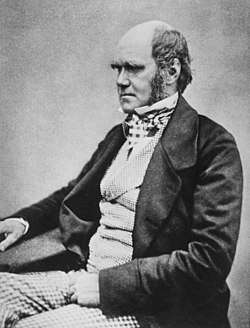Pooh-pooh
A pooh-pooh (also styled as poo-poo)[2] is a fallacy in informal logic that consists of dismissing an argument as being unworthy of serious consideration.[3] Scholars generally characterize the fallacy as a rhetorical device in which the speaker ridicules an argument without responding to the substance of the argument.[4]

Definition
Authors have characterized the fallacy as a form of a straw man fallacy, where an argument is described as inherently worthless or undeserving of serious attention.[5] Some authors have also described the fallacy as the act of "ridicul[ing]" an argument as though it were "a myth",[6] and some characterize it as the act of dismissing an argument "with insults without responding to its substance in any way".[4] Other authors describe the fallacy as the act of dismissing an argument "with the wave of a hand".[7] Some sources also suggest the fallacy is an expression that involves "sneer[ing]",[7] "ridicule",[3] or "malicious comments about the proponent of the argument".[4]
Origins
According to the Oxford Dictionary of English, the term "pooh-pooh" originated in the late eighteenth century as a "reduplication" of the word "pooh", which was a common expression of disgust.[8] Some authors also suggest the term originated as a "representation of the act of spitting in sign of contemptuous rejection".[9]
Relationship with the term "party pooper"
Some commentators have suggested that the term "party pooper" is derived from the phrase "pooh-pooh".[10] These commentators argue that the "disdain" a speaker has when "pooh-poohing" a subject could also "describe the negative connotation of a party pooper".[10] However, other sources suggest the term "party pooper" is derived instead from "pooped", a slang word for "exhausted" or fatigued" and that the phrase "party pooper" describes an individual who is tired of a party.[11]
Use in comedy
The word is often used in comedy due to the obvious opportunities for innuendo.
In the Seinfeld episode "The Chaperone", the exchange "Oh, you're pooh-poohing?", "Yes, I pooh-pooh" between Kramer and Jerry is enough to draw a laugh from the audience.
In The Simpsons episode "Guess Who's Coming to Criticize Dinner?", Homer Simpson is employed as a food critic by an editor who tells him: "We need someone who doesn't immediately pooh-pooh everything he eats." Homer replies: "No, it usually takes a few hours."
In the BBC comedy Blackadder Goes Forth episode "General Hospital", the repetition is stretched to its limits:
Well, I hope so, Blackadder. You know, if there's one thing I've learnt from being in the Army, it's never ignore a pooh-pooh. I knew a Major who got pooh-poohed, made the mistake of ignoring the pooh-pooh. He pooh-poohed it! Fatal error! 'Cos it turned out all along that the soldier who pooh-poohed him had been pooh-poohing a lot of other officers, who pooh-poohed their pooh-poohs! In the end, we had to disband the regiment. Morale totally destroyed—by pooh-pooh!
— General Melchett[12]
See also
| Look up pooh-pooh in Wiktionary, the free dictionary. |
- Hasty generalization
- Appeal to ridicule
- List of fallacies
References
- "Professor Haeckel on Darwin, Goethe, and Lamarck". Nature. Macmillan. 26: 534. 1882. Retrieved 13 November 2015.
- See, e.g., Lurie, Morris (2001). Seventeen Versions of Jewishness: 20 Examples. Common Ground. p. 92. ISBN 1863350438.
- Munson, Ronald; Black, Andrew (2016). The Elements of Reasoning. Cengage Learning. p. 257. ISBN 1305886836.
- Virginia Tech Intellectual Prop. (1999). Language and Logic. Kendall Hunt Publishing Company. p. 119. ISBN 0787262439.
- See, e.g., Munson, Ronald; Black, Andrew (2016). The Elements of Reasoning. Cengage Learning. pp. 149, 257. ISBN 1305886836.
- Dwight, Joyce Ingle (1976). Is It Really So?: A Guide to Clear Thinking. Westminster Press. p. 115. ISBN 0664247830.
- Stanley, Maurice (2002). Logic and Controversy. Wadsworth. p. 98. ISBN 0534573789.
- Stevenson, Angus (2010). Oxford Dictionary of English. OUP Oxford. p. 1380. ISBN 0199571120.
- Wedgwood, Hensleigh (1859). Dictionary of English Etymology, Vol. 1. p. xiv. ISBN 9781230255484.
- Toeniskoetter, Clare (April 6, 2014). "The etymology of "party pooper"". Michigan Radio. Retrieved November 13, 2015.
- Wentworth, Harold; Flexner, Stuart Berg (1980). Dictionary of American Slang. Crowell. ISBN 0690006705.
- "General Hospital". Blackadder Goes Forth, BBC1, 26 October 1989